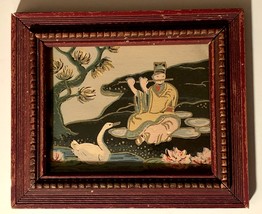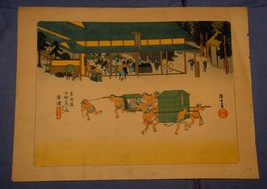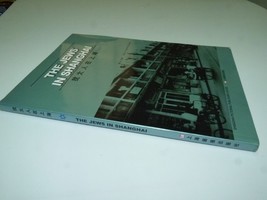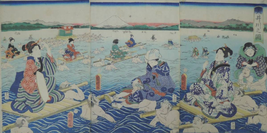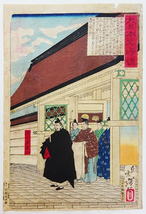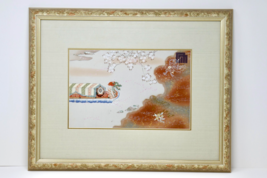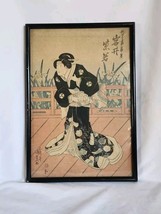Very Rare Original Hiroshi Yoshida Woodblock and 31 similar items
Free Shipping
71 recent views
Very Rare Original Hiroshi Yoshida Woodblock Print ‘Fujiyama from Gotemba’ 1929
$36,450.00
(Buy a Up to 30% discount card for $30.00 first, and you will save $60.00 on this item and get up to 30% off future purchases for the next 3 months.
Unlock the discount with just a few clicks - start here)
Share & earn! Sign in, share this or any listing, and you’ll get commission when it sells.
Learn more
View full item details »
Shipping options
Seller handling time is 2 business days Details
FREE in United States
Offer policy
OBO - Seller accepts offers on this item.
Details
Return policy
Partial refund available within 30 days
Purchase protection
Payment options
PayPal accepted
PayPal Credit accepted
Venmo accepted
PayPal, MasterCard, Visa, Discover, and American Express accepted
Maestro accepted
Amazon Pay accepted
Nuvei accepted
View full item details »
Shipping options
Seller handling time is 2 business days Details
FREE in United States
Offer policy
OBO - Seller accepts offers on this item.
Details
Return policy
Partial refund available within 30 days
Purchase protection
Payment options
PayPal accepted
PayPal Credit accepted
Venmo accepted
PayPal, MasterCard, Visa, Discover, and American Express accepted
Maestro accepted
Amazon Pay accepted
Nuvei accepted
Item traits
| Category: | |
|---|---|
| Quantity Available: |
Only one in stock, order soon |
| Condition: |
Very Good |
| Region of Origin: |
Japan |
| Primary Material: |
Paper |
| Original/Reproduction: |
Vintage Original |
| Maker: |
Hiroshi Yoshida |
| Featured Refinements: |
Japanese Woodblock Print |
| Age: |
1929 |
Listing details
| Seller policies: | |
|---|---|
| Shipping discount: |
Seller pays shipping for this item. |
| Posted for sale: |
More than a week ago |
| Item number: |
1293357001 |
Item description
Very
Rare Original Hiroshi Yoshida Woodblock Print ‘Fujiyama from Gotemba’ 1929
Showing Mt.
Fuji with snow-covered sides, in April.
- Original
western script hand signed signature in pencil Hiroshi Yoshida at lower right.
- Signed with red "character" lower left plus publisher's mark.
- English Title hand signed in pencil Fujiyama from Gotemba at lower left.
- Japanese Title ??? ???
at left
border.
- The date, "Showa Yo Nen Saku" (Made in the 4th Year of Showa [1929]) at left
border.
- Rare two impressed stamps, one a seal, Hiroshi, and the other a printer's rubbing pad, at left.
- Small paper label on verso reads “H. Takemura Co., 45
Sanchome Bentendori, Yokohama, Japan”
- The jizuri seal was not used for this print.
- Printed by the artist; blocks cut by Maeda.
Condition:
Unframed. Some toning, crease on left and right from folding to fit in narrow
frame, small section dark toning on upper corner border, little wavy paper and age
toning due to the matting process, small spot of residue upper right on print,
(see pictures). Overall good condition woodblock print from post devastating Great
Kanto Earthquake.
This
is a very rare woodblock print from Hiroshi Yoshida and is being offered at a
price reflective of the vintage condition. (Blair's
1930 "Toldedo Exhibition" #266)
In
his 1939 book, Yoshida notes that 8 blocks were used with a total of 22
impressions, and that the key block was printed 4 times.
‘Fujiyama from Gotemba’ Hiroshi Yoshida carved blocks and printed himself
Paper size 15.5” x 10.25”
Image size 10” x 7.5”
Fuji san from Gotemba has a special interest in
having been in part carved by Yoshida himself; it is details of the type of the
irregular patterns and swirls of snow on the mountain side which the
print-artist usually finds it more satisfactory, as producing a feeling of more
spontaneity, to carve freehand on the block rather than drawing them in detail
on the original sketch for the carver to follow.
It’s a unique print because he uses the Baren and signature
impression on this print. Only a few other designs use this. There has only been one printing on this, so no posthumous prints.
Biography - Hiroshi Yoshida (1876-1950)
Hiroshi
Yoshida is considered one of the leading figures of the renewal of Japanese
printmaking after the end of the Meiji period (1912). The renewal was based on
two groups of artists, the Shin Hanga (modern prints) and the Sosaku Hanga
(creative prints) movement.
Hiroshi
Yoshida was born on September 19, 1876 in the town of Kurume, in Fukuoka
Prefecture, Japan as the son of an elementary school principal. His artistic
talent was discovered early and at the age of 18 he entered a private art
school in Tokyo.
Hiroshi
started as a painter and soon won many art exhibition prizes. But it was not
before 1920 that he began creating woodblock prints.
The
traditional process of creating Japanese woodblock prints was a cooperation of
three strictly separated skills: the artist who designed the print subject, the
carver and finally the printer and publisher. In contrast to this traditional
approach, the Sosaku Hanga followers believed that the process of creating a
print - design, carving, printing - should be performed by the artist himself.
Although
Yoshida Hiroshi is usually considered as a member of the Shin Hanga movement,
he followed the same ambitions of creating a print by himself.
In
1923 Watanabe's store was completely destroyed in the fires that followed the
Great Kanto Earthquake. All of Yoshida Hiroshi's wood blocks and more than a
hundred of his prints were lost.
After
coming back from his third visit to the United States, Yoshida Hiroshi started
employing his own artisan carvers and printers in 1925. He supervised them very
closely and often he carved a block himself. He thought that he had to be more
skilled in all aspects of producing a print than each of his workers.
|
Why are we showing these items?
Search Results
Category "Prints"
|

-
Refine your browsing experience
We can show you more items that are exactly like the original item, or we can show you items that are similar in spirit. By default we show you a mix.
This item has been added to your cart
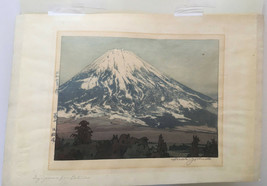 Very Rare Original Hiroshi Yoshida Woodblock Print ‘Fujiyama from Gotemba’ 1929 added to cart.
Only one available in stock
Very Rare Original Hiroshi Yoshida Woodblock Print ‘Fujiyama from Gotemba’ 1929 added to cart.
Only one available in stock
View Cart or continue shopping.
 Please wait while we finish adding this item to your cart.
Please wait while we finish adding this item to your cart.
Get an item reminder
We'll email you a link to your item now and follow up with a single reminder (if you'd like one). That's it! No spam, no hassle.
Already have an account?
Log in and add this item to your wish list.
















